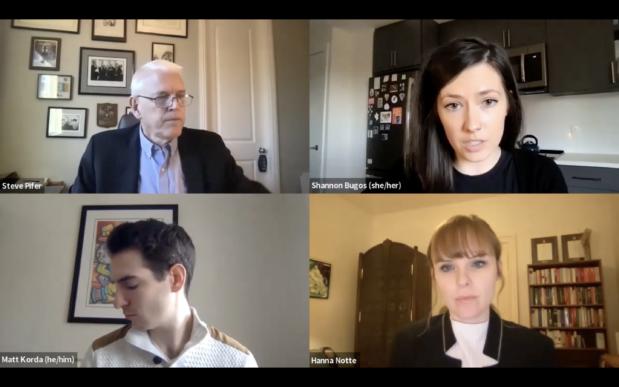On February 1, VCDNP Senior Research Associate Dr. Hanna Notte spoke at a special virtual briefing, hosted by the Arms Control Association in Washington, DC. The briefing focused on reviewing problems in, and potential solutions for, maintaining constraints on the U.S. and Russian strategic nuclear arsenals, especially in light of the current impasse over full implementation of the New START Treaty.
In her remarks. Dr. Notte reviewed Russia’s approach to nuclear arms control, in past years and more recently against the backdrop of war in Ukraine. She argued that Russia has ceased to compartmentalize nuclear arms control generally, and the resumption of on-site inspections under New START specifically, from the confrontation over Ukraine. It is unclear, she concluded, how long Moscow’s attempt to blackmail the United States into abandoning military support for Ukraine by threatening disruption of New START is going to last.
Other panelists included Cara Abercrombie (deputy assistant tothe president and coordinator for defense policy and arms control for the White House National Security Council), Ambassador Steve Pifer (non-resident Senior Fellow at the Brookings Institution), Matt Korda (Senior Research Associate at the Federation of American Scientists), and Ambassador Jarmo Viinanen (Chair-designate of the 2023 Nonproliferation Treaty Preparatory Committee Meeting). The event was moderated by Daryl Kimball and Shannon Bugos of the Arms Control Association.
You can find the link to the event page here.
In addition to speaking at this special briefing, Dr. Notte also published an op-ed on February 4 in the German Frankfurter Allgemeine Zeitung newspaper, arguing that a modicum of Russian-U.S. nuclear arms control remains in Germany’s interest, notwithstanding the war in Ukraine. You can find the full article here.

